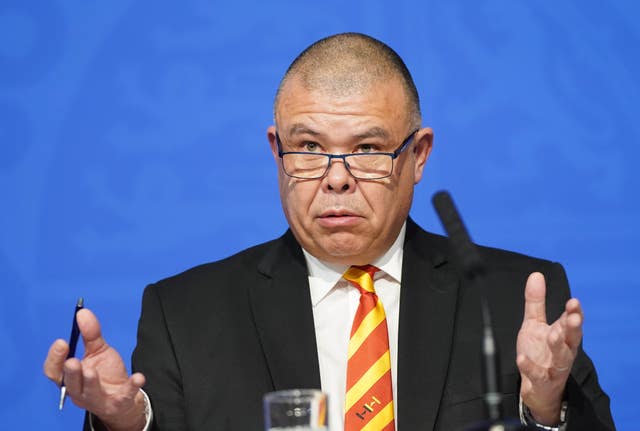The “gold standard” for measuring coronavirus levels in the community has been awarded a national prize – despite it being “scaled down” by the Government.
The weekly Office for National Statistics (ONS) Covid-19 infection survey has been recognised with the inaugural Harding Prize for Useful and Trustworthy Communication.
The £3,141 prize was launched to celebrate individuals or teams liaising on information which helps inform policies or procedures.
It was judged by five experts, including deputy chief medical officer Professor Sir Jonathan Van-Tam, Helen Boaden of the UK Statistics Authority, and former Nuffield Foundation chairwoman Professor Onora O’Neill.

The panel said the Covid survey won the award because it “shaped decision making” in Government.
The members added: “The survey became the bedrock of all accurate communication on changing infection rates and variables in the UK during the Covid pandemic.
“The survey was innovative, impartial and clear and it shaped decision making at national, regional and local levels.
“Its lack of commentary – which probably made it rather dry for some audiences – augmented its credibility with policy makers and those like journalists, talking directly to the public.
“It is no exaggeration to say that the survey became the gold standard of infection information and was the envy of scientific communities around the world.
“It also became a trusted source of reliable information for numerous members of the British public.”
The prize, launched in association with the Science Media Centre and Sense about Science, will be awarded on Monday – international Pi Day – by the Winton Centre for Risk and Evidence Communication, based at the Centre for Mathematical Sciences at the University of Cambridge, supported by billionaire businessman Sir David Harding.
Today’s #COVID19 data shows increases in infections across all four nations of the UK ⬇https://t.co/Ymspju7hEc pic.twitter.com/bePyi0zVJE
— Office for National Statistics (ONS) (@ONS) March 11, 2022
The ONS survey, based on nose and throat swabs taken from a representative sample of tens of thousands of people in private households, won jointly with the Cochrane Collaboration’s review of hydroxychloroquine.
The same people are sampled regularly by the ONS, whether or not they know they have Covid-19 or have separately reported a positive result.
The agency uses the results to estimate the percentage of people likely to test positive for Covid-19 at a point in time, regardless of when they caught the virus, how many times they have had it and whether they have symptoms.
The Government said in February that the survey would be used in a “scaled down” form in the future, as part of the transition to a new phase of “living with Covid” in which mass testing, including free lateral flows, will stop on April 1.
Figures published by the ONS infection survey most recently said that 2.6 million people in the UK were estimated to have coronavirus last week, up from 2.4 million.
The number was 4.3 million at the start of the year.




Comments: Our rules
We want our comments to be a lively and valuable part of our community - a place where readers can debate and engage with the most important local issues. The ability to comment on our stories is a privilege, not a right, however, and that privilege may be withdrawn if it is abused or misused.
Please report any comments that break our rules.
Read the rules here